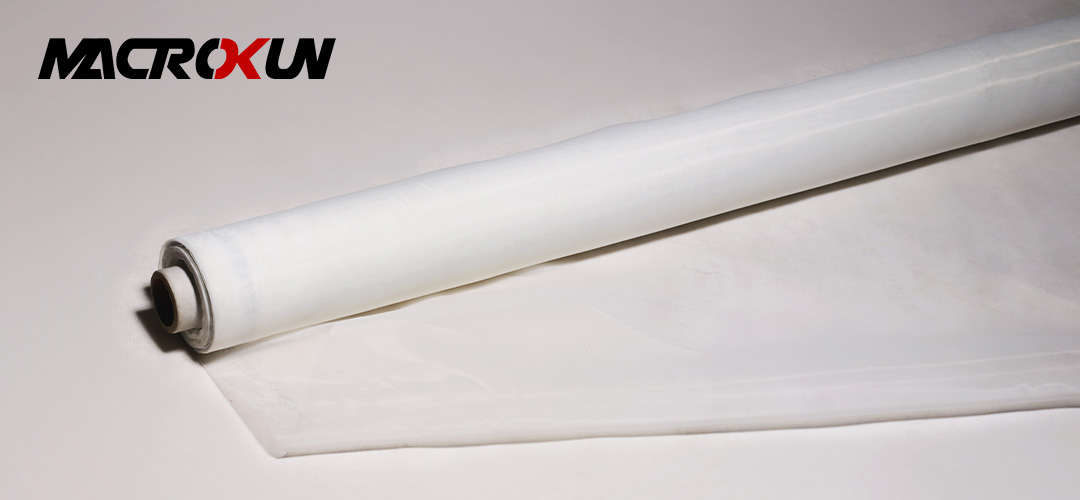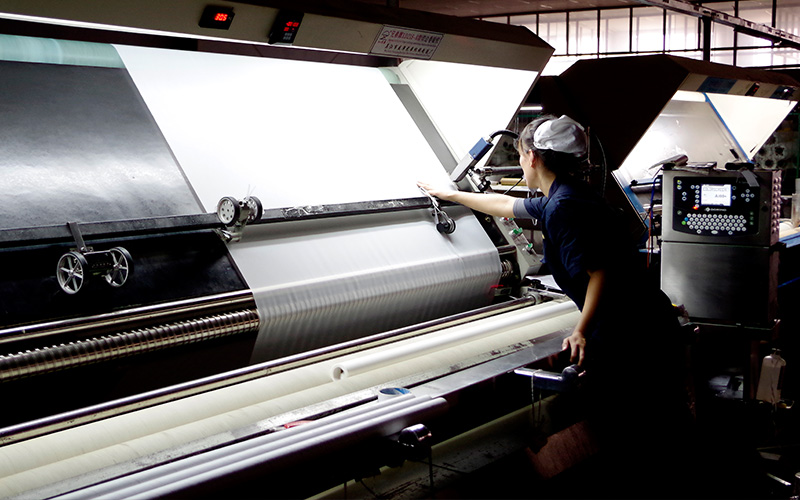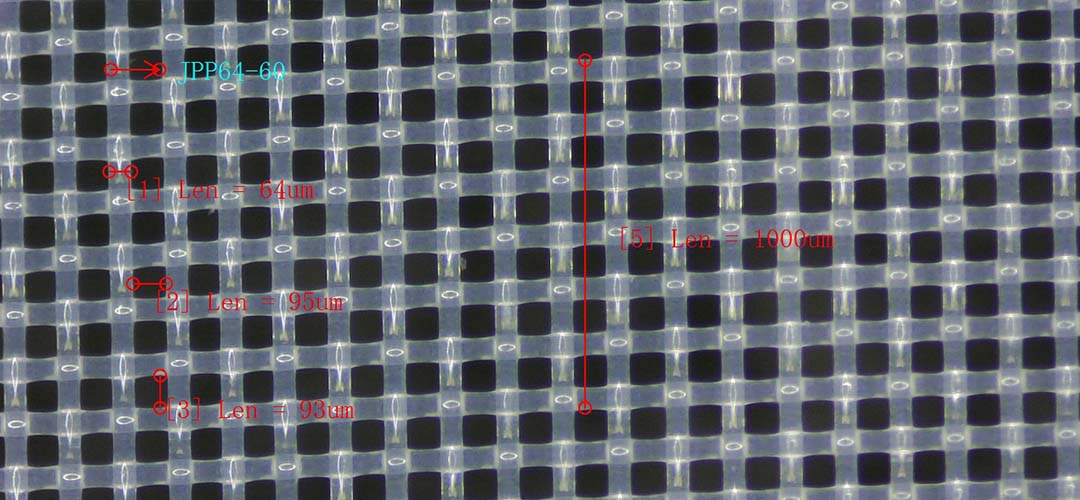When it comes to specialized filtration applications, having the right equipment is crucial to achieving optimal results. One such piece of equipment that is highly effective in specialized filtration is the 20 micron nylon mesh. This type of mesh is known for its high precision and ability to capture even the smallest particles, making it ideal for a wide range of filtration needs.
One of the key benefits of using 20 micron nylon mesh for specialized filtration is its ability to provide a high level of filtration efficiency. The small pore size of the mesh allows it to capture particles as small as 20 microns, ensuring that even the tiniest contaminants are removed from the fluid being filtered. This level of precision is essential in many industries, such as pharmaceuticals, food and beverage, and electronics, where even the smallest impurities can have a significant impact on product quality.
In addition to its high filtration efficiency, 20 micron nylon mesh is also known for its durability and longevity. Made from high-quality nylon material, this type of mesh is resistant to chemicals, abrasion, and high temperatures, making it suitable for use in a wide range of harsh environments. This durability ensures that the mesh will maintain its effectiveness over time, reducing the need for frequent replacements and saving on maintenance costs.
Another benefit of using 20 micron nylon mesh for specialized filtration is its versatility. This type of mesh can be easily customized to meet specific filtration requirements, such as different pore sizes, thicknesses, and widths. This flexibility allows for greater control over the filtration process, ensuring that the mesh is tailored to the specific needs of the application.
Furthermore, 20 micron nylon mesh is easy to clean and maintain, making it a cost-effective option for specialized filtration. Unlike some other types of filtration media that require frequent replacement or complex cleaning procedures, nylon mesh can be easily cleaned with water or a mild detergent, ensuring that it remains in optimal condition for extended periods of time. This ease of maintenance not only saves time and money but also ensures consistent filtration performance.
In conclusion, the benefits of using 20 micron nylon mesh for specialized filtration are clear. Its high filtration efficiency, durability, versatility, and ease of maintenance make it an ideal choice for a wide range of applications where precision filtration is required. Whether in the pharmaceutical, food and beverage, or electronics industry, this type of mesh can provide the level of filtration needed to ensure product quality and consistency. By investing in high-quality 20 micron nylon mesh, businesses can achieve superior filtration results and improve overall operational efficiency.
20 Micron Nylon Mesh: High Precision for Specialized Filtration
Applications of 20 Micron Nylon Mesh in Various Industries
Nylon mesh is a versatile material that finds applications in a wide range of industries. With its high precision and durability, 20 micron nylon mesh has become a popular choice for specialized filtration needs. In this article, we will explore the various industries where this mesh is used and the benefits it offers.
One industry that extensively uses 20 micron nylon mesh is the pharmaceutical industry. In the production of medicines, it is crucial to remove impurities and ensure the highest level of purity. The fine mesh size of 20 microns allows for effective filtration, removing even the smallest particles. This ensures that the final product meets the stringent quality standards set by regulatory authorities.
Another industry that relies on 20 micron nylon mesh is the food and beverage industry. In food processing, it is essential to maintain hygiene and prevent contamination. The mesh acts as a barrier, preventing unwanted particles from entering the production process. Whether it is filtering out solid impurities or separating liquids, the high precision of the mesh ensures that only the desired components pass through.
The automotive industry also benefits from the use of 20 micron nylon mesh. In engine manufacturing, the mesh is used to filter out contaminants from lubricating oils and fuels. This helps to prolong the life of the engine and improve its performance. Additionally, the mesh is used in air filtration systems, ensuring that only clean air enters the engine, reducing the risk of damage.
The textile industry is another sector where 20 micron nylon mesh plays a vital role. During the dyeing process, it is essential to remove any impurities or dye particles that may affect the final color and quality of the fabric. The mesh acts as a filter, allowing only the dye solution to pass through, resulting in vibrant and consistent colors.
In the water treatment industry, 20 micron nylon mesh is used for various filtration applications. Whether it is removing suspended solids, bacteria, or other contaminants, the mesh provides an effective solution. Its high precision ensures that the water is thoroughly filtered, making it safe for consumption or industrial use.
The electronics industry also relies on 20 micron nylon mesh for specialized filtration needs. During the production of electronic components, it is crucial to prevent the entry of dust particles or other contaminants that may affect the performance of the devices. The mesh acts as a protective barrier, ensuring that only clean air enters the production area.

In the mining industry, 20 micron nylon mesh is used for mineral processing and separation. Whether it is separating different-sized particles or removing impurities from ores, the mesh provides an efficient solution. Its durability and resistance to abrasion make it suitable for the harsh conditions encountered in mining operations.
In conclusion, 20 micron nylon mesh finds applications in various industries due to its high precision and durability. From pharmaceuticals to food and beverage, automotive to textiles, water treatment to electronics, and mining, the mesh offers specialized filtration solutions. Its ability to remove impurities and ensure the desired quality makes it an indispensable tool in these industries. As technology advances and new challenges arise, the demand for 20 micron nylon mesh is expected to grow, further cementing its position as a high-precision filtration material.
When it comes to specialized filtration needs, having the right equipment is crucial. One such piece of equipment that is commonly used in various industries is the 20 micron nylon mesh. This type of mesh is known for its high precision and efficiency in filtering out particles of a specific size. In this article, we will discuss how to choose the right 20 micron nylon mesh for your filtration needs.
First and foremost, it is important to understand what exactly a 20 micron nylon mesh is. The term “20 micron” refers to the size of the openings in the mesh, with each opening measuring 20 microns in diameter. This means that the mesh is capable of filtering out particles that are larger than 20 microns in size, making it ideal for applications where fine filtration is required.
When choosing a 20 micron nylon mesh, one of the key factors to consider is the material of the mesh itself. Nylon is a popular choice for filtration applications due to its durability, flexibility, and resistance to chemicals and abrasion. Additionally, nylon mesh is known for its high tensile strength, which allows it to withstand high pressures and temperatures without losing its shape or integrity.
Another important consideration when choosing a 20 micron nylon mesh is the weave pattern. The weave pattern of the mesh determines how tightly the mesh is woven, which in turn affects its filtration efficiency. Common weave patterns for nylon mesh include plain weave, twill weave, and Dutch weave. Each weave pattern has its own unique characteristics and is suitable for different types of filtration applications.

In addition to the material and weave pattern, the size and shape of the mesh openings are also important factors to consider when choosing a 20 micron nylon mesh. The size of the openings will determine the size of particles that can pass through the mesh, while the shape of the openings can affect the flow rate and efficiency of the filtration process. It is important to choose a mesh with openings that are appropriate for the size of particles you are trying to filter out.
Furthermore, it is essential to consider the operating conditions of your filtration system when choosing a 20 micron nylon mesh. Factors such as temperature, pressure, and chemical compatibility can all affect the performance and lifespan of the mesh. It is important to choose a mesh that is capable of withstanding the specific conditions of your filtration system to ensure optimal performance and longevity.

In conclusion, choosing the right 20 micron nylon mesh for your filtration needs requires careful consideration of factors such as material, weave pattern, size and shape of openings, and operating conditions. By taking these factors into account, you can ensure that you select a mesh that is capable of providing high precision filtration for your specialized applications. Whether you are filtering out particles in a laboratory setting or removing contaminants from industrial wastewater, a 20 micron nylon mesh can provide the efficiency and reliability you need for your filtration system.
Pre: What is Nylon Filter Mesh? Understanding Its Role in Filtration
Next: 10 Micron Nylon Mesh: Superior Quality for Fine Particle Filtration

MACROKUN has established long-term and stable cooperative relations with many transportation companies such as China Post, DHL, FEDEX, USPS, UPS, etc. Of course, MACROKUN can also provide air and sea transportation. The powerful logistics system enables all MACROKUN'S Printing Mesh, Filter Mesh and Filter Bags and so on to be easily and efficiently transported to any place. For quotes and inquiries, please email our sales team.





